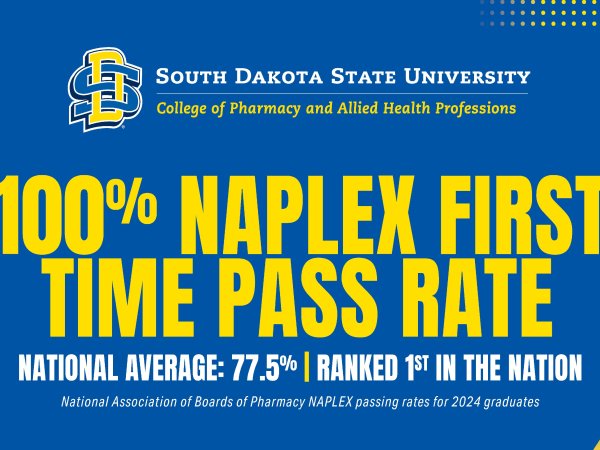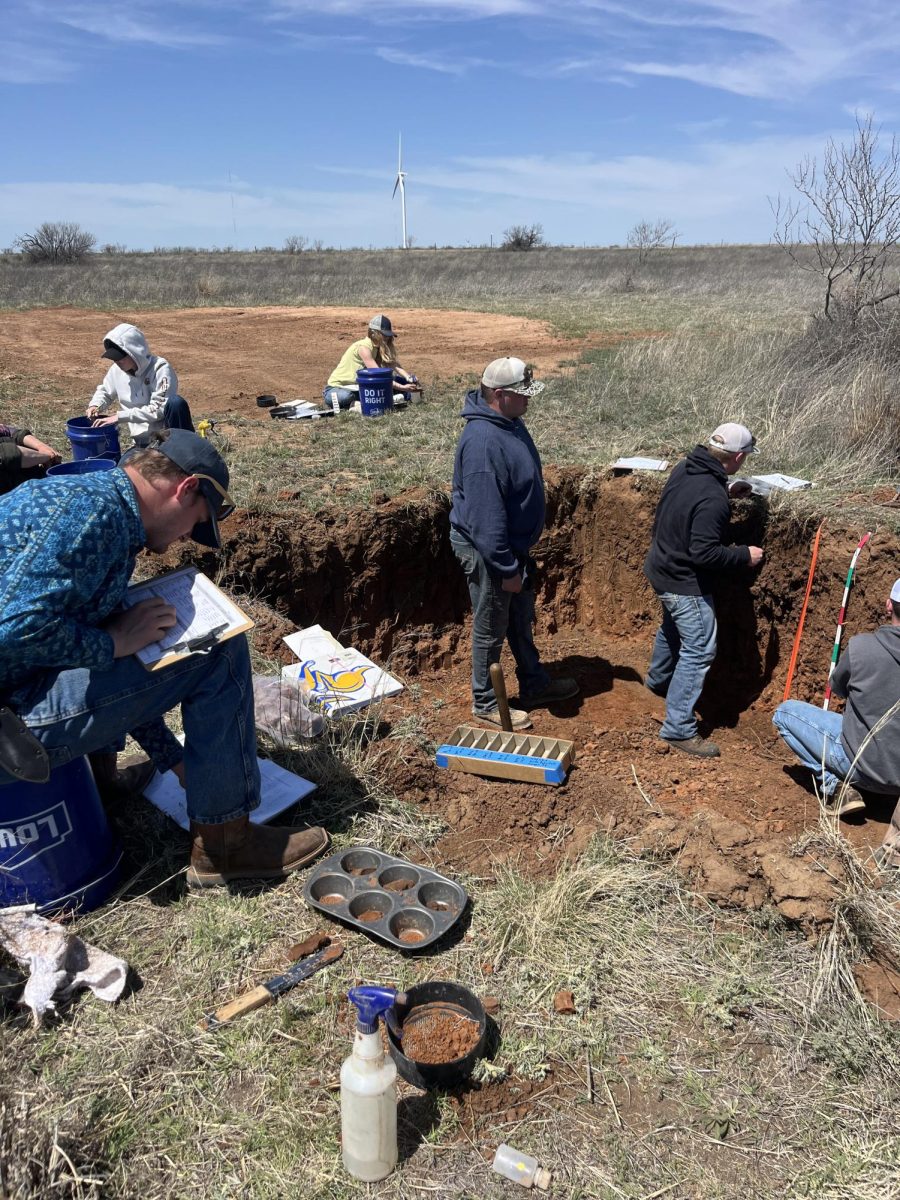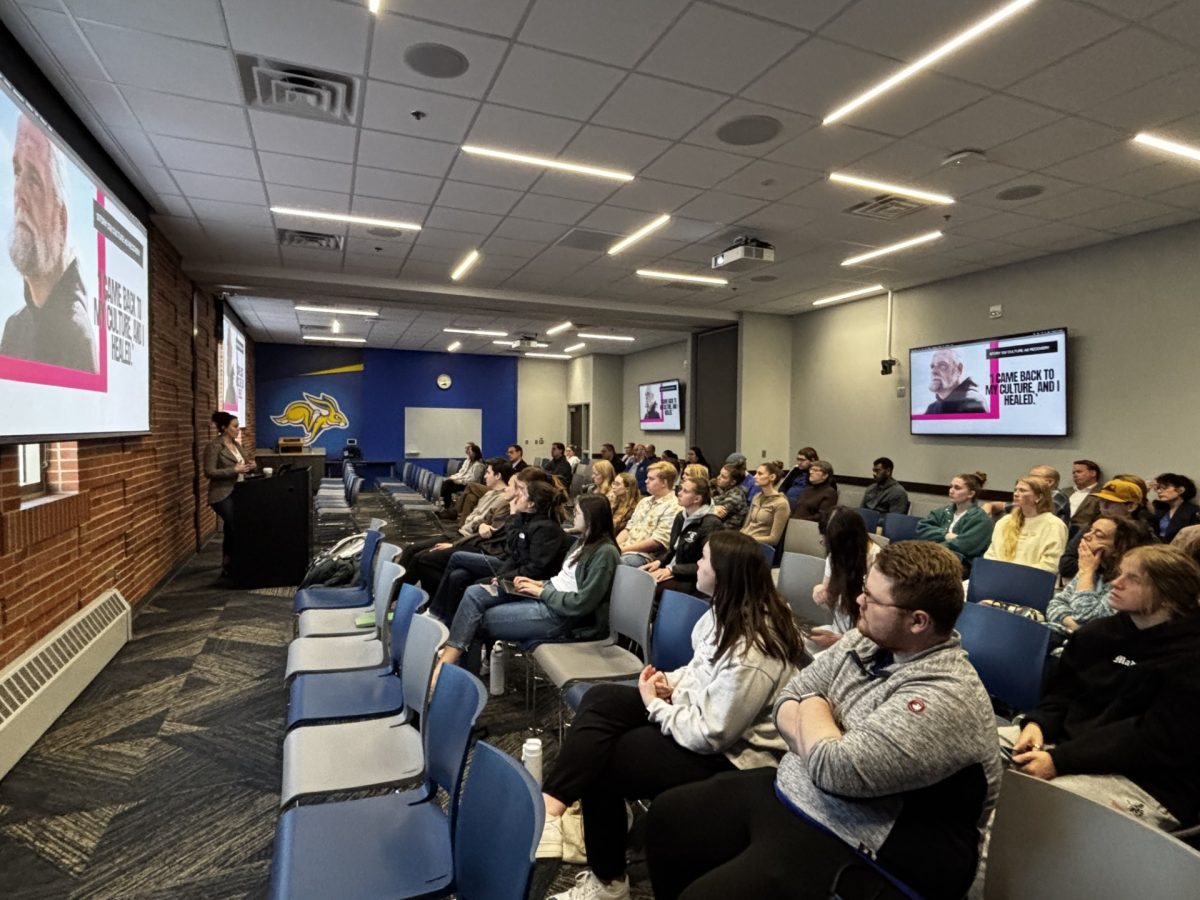The College of Education and Human Sciences, which consists of two schools, the School of Education, Counseling and Human Sciences and the School of Health and Consumer Sciences, foresees significant changes coming after Evan Ortlieb was hired as dean, earlier this year.
After Dean Paul Barnes stepped down, the college was in an interim period where students and faculty were unsure of what was to come.
But Ortlieb has worked to instill trust and stability in the college in the three months since he has been here.
“We need to focus on the relationships that we forge with faculty, staff, and my fellow administrators, and that they are no different because we are with them just as much as we are with our families,” Dean of the College of Education and Human Sciences, Evan Ortlieb said.
“Dr. Ortlieb came in and hit the ground running with a lot of initiatives,” said Patrick Hales, assistant director of K-12 teacher education, associate professor, School of Education, Counseling and Human Development. “Once he knows you he’s going to find you in a room or a crowd and talk about whatever you want to talk about. He will come up to you and ask questions to see how you are doing.”
One of Ortlieb’s short-term goals going forward is to continue investing in his faculty. This consists of three things; buying as many books as teachers are willing to read, sending faculty members to specific conferences to explore new learning opportunities and sending leadership members to do professional development over the summer.
“We’re going to be focusing on sending people to particular conferences that they haven’t been to yet; to explore what they might be able to learn from other people,” Ortlieb said.
Ortlieb’s second short-term goal is to continue to help rapidly growing programs through the expansion of resources.
EHS has three of the five largest programs which include exercise science, elementary education, and aviation which means hiring more faculty to even out the student-faculty ratio, so students have more one-on-one experience with teachers.
“He’s taken the initiative to start advocating for the expansion of resources that allow faculty within the program to maintain a high level of research excellence while also continuing to provide an excellent academic product for the students,” said Lee Weidauer, associate professor for the School of Health and Consumer Science.
“My long-term goal is feeding into programs that need a curricular refresh,” said Ortlieb.
Elementary education and special education were introduced in Fall 2023. Although these programs were set in motion before Ortlieb stepped into this position, he has been putting additional time and effort into expanding them.
In the academic school year 2023-2024, elementary education’s current enrollment is 96 students with 100 incoming applicants. Their goal for the 2024-2025 academic school year is 75 enrolled students.
The current enrollment for special education in the 2023-2024 academic school year is five students with an anticipated increase this spring 2024. Their goal for the 2024-2025 academic school year is 24 students according to a message from Ortlieb.
“First and foremost, Dr. Ortlieb has been very open to the conversation about how we add and update courses that are enticing to the students,” Hales said. “How can we add to the resources and spaces that we have that make them more valuable to students.”
Students and faculty members who know Ortlieb talk about his efforts to build relationships within the EHS community.
“He takes the time to connect with everyone within the program, always has a smile on his face, and is genuinely interested in people and learning more about them,” said Margaret Schlipsiek, student office assistant.
Ortlieb actively listens to students and faculty in the EHS programs and asks questions on how he can improve his efforts to be a better leader.
Weidauer describes one exercise that was a substantial learning experience for Ortlieb during the spring semester kickoff. Each faculty member was given a series of pictures. The first set of pictures was given to the faculty members choosing one that represented them as leaders from the second series of pictures they chose from what they wanted in a leader. The exercise helped Ortlieb get to know his faculty and how the college could collaborate as a team.
Ortlieb puts importance on increasing student and faculty engagement. Whether that means setting up additional workshops for teachers, planning activities outside of the classroom, or helping to ensure students are getting active learning experiences, according to Weidauer.
One example was a professional development workshop that was introduced to SDSU by Lucas P. Wintrode Autism Support Services that focuses on informing teachers of autism on campus. Overall, Ortlieb feels that SDSU’s EHS program is a place for students to grow and feel supported.
“Ortlieb puts emphasis on engaging all students at all levels, where he talks about engaging students before they’re here, when they’re here, and after they’re here,” Weidauer said.
Ortlieb and the College of EHS provides stability such as helping students find internships which allows them to feel good about the investments they are making into their college education.
“I am a firm believer that if somebody is going to invest their hard-earned dollars into SDSU, particularly in these programs, how can we create that almost guaranteed job on the back end so that there are no more question marks around is this going to be a good return on investment,” Ortlieb said.
The EHS program has not seen big changes yet from Ortlieb stepping into this position he has made extensive efforts.
Ortlieb has met with as many stakeholders in the South Dakota region such as the Children of United Methodist Church, Brookings School District and Sioux Falls School District.
Ortlieb has taken the time to gather data to analyze what he needs to further improve within the EHS programs. He has continued to push for growth within programs and their infrastructure, such as their hopes for a new building for educational research and outreach, and programs related to autism.
“I think he has helped and will continue to help moving forward with getting more resources, getting the spaces we need to build classrooms, have well-instructed classes, and getting the resources we need to be innovative and do great research,” Hales said.
The College of Education and Human Sciences recruited Evan Ortlieb after a year in an interim period
1
More to Discover






















